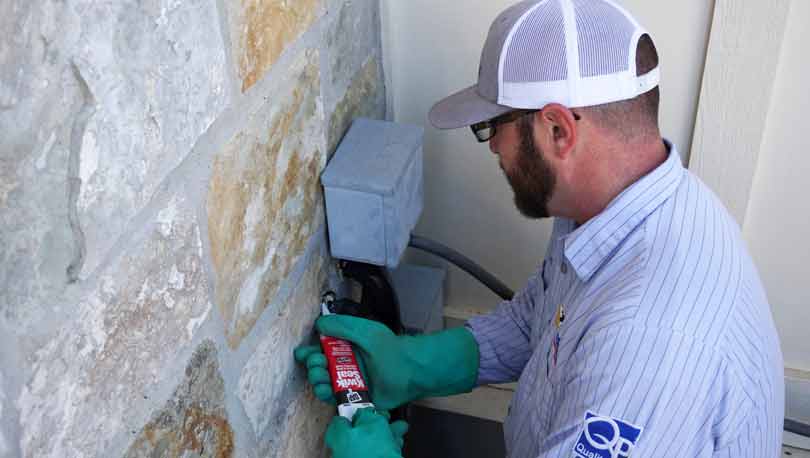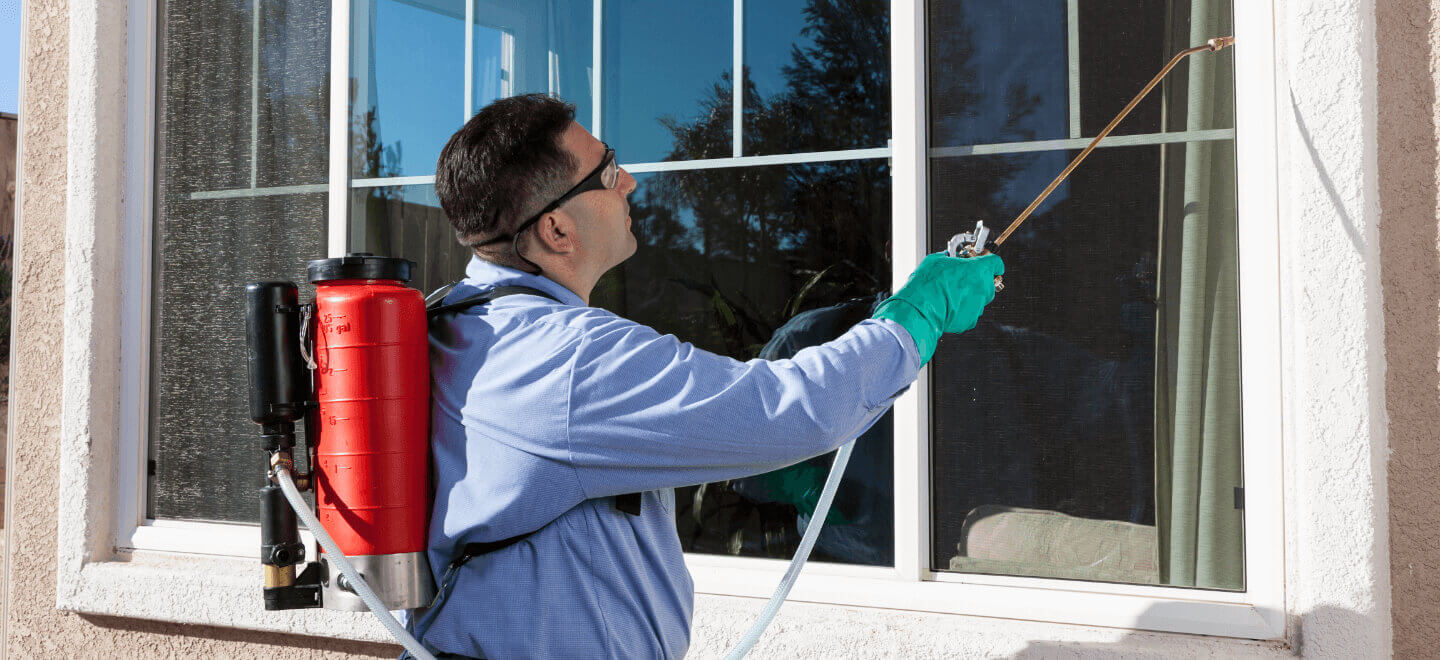Rest Easy with Orem Pest Control: Reliable Protection Versus Pest Intrusions
Rest Easy with Orem Pest Control: Reliable Protection Versus Pest Intrusions
Blog Article
Uncovering the Various Sorts Of Pest Control Techniques and Their Applications
Bug control is a vital aspect of maintaining a risk-free and healthy atmosphere, whether it be in property, industrial, or farming setups. From chemical techniques that target particular pests to organic methods that harness natural killers, the world of bug control is vast and varied.
Chemical Bug Control Strategies
Chemical bug control strategies are widely used in farming and bug monitoring to efficiently eradicate or manage pest problems. These techniques involve the use of chemical substances, such as herbicides, insecticides, and pesticides, to get rid of or decrease insect populaces that position a risk to plants, animals, or human health and wellness. Pesticides, as an example, target certain pests like rats, pests, or weeds, interrupting their life cycles or causing direct injury upon get in touch with. Herbicides are especially developed to control undesirable plant life that takes on crops for sources and nutrients. Pesticides, on the other hand, are made use of to battle insect bugs that can damage plants and transfer diseases.
While chemical bug control techniques can be extremely efficient in managing pest populations, they additionally elevate concerns about prospective ecological and wellness dangers. It is essential to comply with safety and security standards, make use of incorporated pest monitoring methods, and consider different approaches to lessen the adverse effects of chemical insect control strategies.
Biological Parasite Control Approaches
 Biological parasite control approaches use living organisms to manage and decrease insect populaces in a environmentally pleasant and sustainable manner. One usual method is the launch of ladybugs to fight aphids in gardens, as ladybugs are all-natural killers of these destructive pests.
Biological parasite control approaches use living organisms to manage and decrease insect populaces in a environmentally pleasant and sustainable manner. One usual method is the launch of ladybugs to fight aphids in gardens, as ladybugs are all-natural killers of these destructive pests.
Biological parasite control techniques use several advantages over chemical approaches. They are usually more secure for the environment, as they do not leave harmful deposits or add to air pollution. In addition, these approaches are often much more targeted, affecting just the pest species without damaging various other organisms or useful pests. Organic control can be a long-term option, as the presented microorganisms can develop sustainable populations and supply continuous parasite administration. On the whole, biological bug control techniques offer a efficient and natural alternative to traditional chemical treatments, promoting a well balanced ecosystem and much healthier settings.
Physical Bug Control Approaches
Making use of physical techniques to manage bugs includes using mechanical or non-chemical means to alleviate and handle bug infestations efficiently. These strategies depend on physical barriers, traps, and other techniques to prevent and remove insects without the use of damaging chemicals. One common physical bug control method is the setup of fences, internet, or displays to obstruct insects from entering certain locations. This technique is particularly efficient in keeping out insects and little animals from buildings or gardens.
An additional physical technique is the use of catches, such as snap catches for rodents or scent catches for pests. These traps purpose to capture pests without posturing any threat to humans or the atmosphere. In addition, physical control methods can include strategies like handpicking pests off plants, utilizing vacuum cleaner gadgets to eliminate bugs, or employing warmth therapies to remove bed pests and various other insects in plagued locations.
Integrated Parasite Management Strategies
Applying a holistic strategy to pest monitoring, Integrated Pest Management (IPM) methods intend to integrate numerous efficient strategies to stop and manage insect problems while reducing ecological impact and making sure sustainable insect control practices. IPM entails the assimilation of several control methods such as organic control, cultural methods, mechanical control, and the careful usage of chemicals.

Moreover, IPM highlights the significance of tracking and assessing pest populations to figure out one of the most proper control approaches. By applying IPM strategies, insect control initiatives end up being extra targeted and efficient, decreasing the risks linked with too much pesticide use and promoting long-lasting bug monitoring options.
All-natural and Organic Parasite Control Options

One preferred organic insect control approach is neem oil, stemmed from the seeds of the neem tree, which serves as a repellent and disrupts the growth and advancement of insects. Diatomaceous planet, an all-natural silica-based powder, is another efficient natural pest control alternative that functions by drying out pests upon get in touch with. By incorporating all-natural and organic pest control options into pest administration techniques, individuals can efficiently control parasites while lessening injury to the atmosphere and promoting lasting practices.
Conclusion
To conclude, numerous pest control methods such as chemical, biological, physical, incorporated parasite management, and all-natural options are offered for efficiently taking care of pest infestations. Each method has its very own advantages and applications depending upon the kind of bug and the setting. By understanding the various kinds of bug control methods and their applications, people can make educated decisions on one of the most suitable strategy to regulate parasites and shield their residential property.
Chemical bug control techniques are extensively made use of in agriculture and pest monitoring to effectively remove or manage pest problems - Orem Pest Control. Natural pest control methods involve making use of organic control agents, such as bloodsuckers or predators, to take care of pest populations. By including all-natural and organic bug control alternatives into parasite management approaches, individuals find here can properly control insects while lessening injury to the environment and promoting lasting methods
In final thought, different pest control strategies such as chemical, biological, physical, integrated parasite management, and natural options are offered for successfully handling bug invasions. By recognizing the different types of parasite control methods and their applications, people can make enlightened decisions on the most ideal technique to regulate insects and shield their building.
Report this page